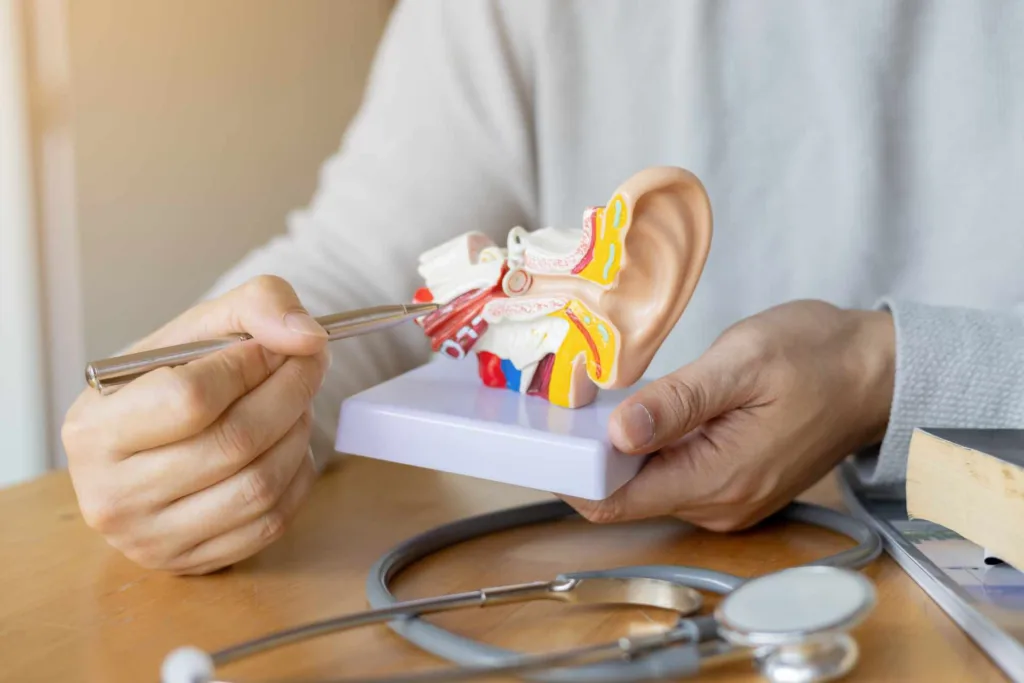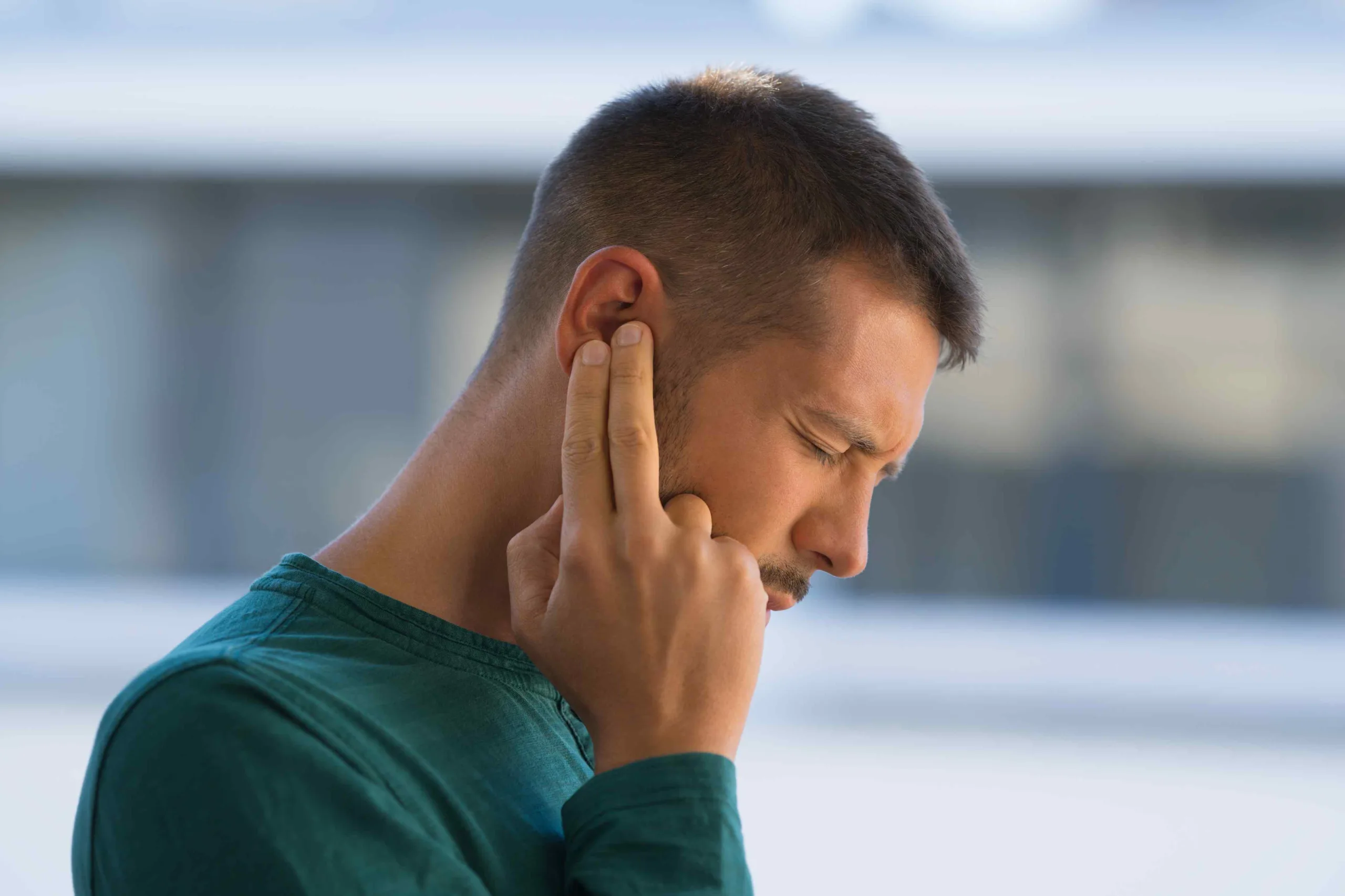Ear ringing, or tinnitus, is a common yet often overlooked symptom following a car accident. This persistent ringing in the ears can range from mildly annoying to severely debilitating, affecting daily activities and overall quality of life. Addressing ear ringing after a car accident is crucial, as it can indicate underlying injuries that require immediate attention. Understanding the causes, accompanying symptoms, diagnostic methods, and treatment options are vital for effective management and recovery.
What Causes Ear Ringing After a Car Accident?
Tinnitus after a car accident can be attributed to several factors. One of the most common causes is whiplash, a sudden and forceful movement of the head and neck, which can damage the inner ear or auditory nerves. This type of injury often occurs during rear-end collisions and can lead to ear ringing due to the trauma inflicted on the delicate structures within the ear.
Another significant cause is head injuries. During a car accident, the head can be subjected to blunt force trauma, leading to concussions or other forms of traumatic brain injuries. These injuries can disrupt the normal functioning of the auditory pathways, resulting in tinnitus.
Airbag deployment can also contribute to ear ringing. While airbags are essential for protecting passengers during a crash, their rapid deployment can produce loud noises and sudden pressure changes. These intense conditions can affect the ear’s internal structures, causing temporary or even permanent tinnitus.
Symptoms Accompanying Ear Ringing
Ear ringing is often accompanied by other symptoms that should not be ignored. These symptoms include:
- Dizziness: Many individuals who experience tinnitus also report feeling dizzy or off-balance.
- Headaches: Persistent headaches are common and can be a sign of underlying issues such as a concussion.
- Hearing Loss: Partial or complete hearing loss in one or both ears can occur alongside tinnitus.
- Nausea: Dizziness and headaches can lead to feelings of nausea.
- Fatigue: Constant ear ringing and associated symptoms can lead to fatigue and difficulty concentrating.
Diagnosing Ear Ringing After a Car Accident
Accurate diagnosis of tinnitus following a car accident is essential for effective treatment. The diagnostic process typically involves several steps:
- Hearing Tests: Audiologists perform various hearing tests to assess the extent of hearing loss and the presence of tinnitus. These tests help in determining the severity and impact of ear ringing.
- Physical Examinations: A thorough physical examination by a healthcare professional can help identify any physical injuries that may be contributing to tinnitus. This includes examining the head, neck, and ear structures for signs of trauma.
- Imaging Tests: Imaging tests such as MRI or CT scans may be necessary to detect any internal injuries or abnormalities in the auditory system. These tests provide a detailed view of the brain and ear structures, helping to pinpoint the exact cause of tinnitus.
Consulting a healthcare professional for an accurate diagnosis is vital for developing an effective treatment plan tailored to the individual’s specific needs.
Treatment Options for Ear Ringing After a Car Accident

Treating ear ringing after a car accident involves addressing the underlying causes and providing symptomatic relief. Various treatment options include:
Medical Treatments
- Medications: Anti-anxiety medications, antidepressants, or other drugs can help manage the psychological impact of tinnitus and reduce the severity of symptoms.
- Hearing Aids: For those with concurrent hearing loss, hearing aids can amplify external sounds and make tinnitus less noticeable.
Sound Therapy
- White Noise Machines: These devices generate background noise that can help mask the ringing sound of tinnitus.
- Tinnitus Retraining Therapy (TRT): This combines sound therapy with counseling to help patients habituate to the tinnitus sounds.
Lifestyle Changes
- Stress Management: Techniques such as mindfulness, yoga, and cognitive behavioral therapy can reduce stress and its impact on tinnitus.
- Healthy Diet: Maintaining a balanced diet and avoiding caffeine, alcohol, and nicotine can help manage tinnitus symptoms.
Chiropractic Therapy
- Benefits of Chiropractic Care: Chiropractic adjustments can address musculoskeletal issues stemming from whiplash and other injuries. By realigning the spine and reducing nerve compression, chiropractic care can alleviate some of the underlying causes of tinnitus.
Preventative Measures and Long-Term Management
Preventing and managing tinnitus long-term requires a proactive approach. Consider these tips:
- Protect Your Ears: Use ear protection in noisy environments to prevent further auditory damage.
- Seek Early Treatment: Addressing injuries promptly can prevent complications that may lead to tinnitus.
- Follow Safe Driving Practices: Always wear a seatbelt and ensure proper headrest positioning to minimize the risk of whiplash.
- Regular Check-Ups: Regular visits to healthcare providers can help monitor and manage any ongoing symptoms.
Get Comprehensive Accident Injury Care at Affordable Chiropractic Killeen
Experiencing ear ringing after a car accident can be distressing, but understanding the causes and seeking appropriate treatment can make a significant difference. Affordable Chiropractic Killeen is dedicated to providing top-tier care for car accident injuries, including comprehensive treatment for tinnitus. Our team offers chiropractic therapy, spinal decompression, active rehab, and on-site X-rays as part of a holistic approach to injury care. We are committed to delivering individualized, high-quality care to help you recover fully.
Learn more about Killeen Chiropractic and schedule an appointment today to start your journey toward healing and improved well-being.

